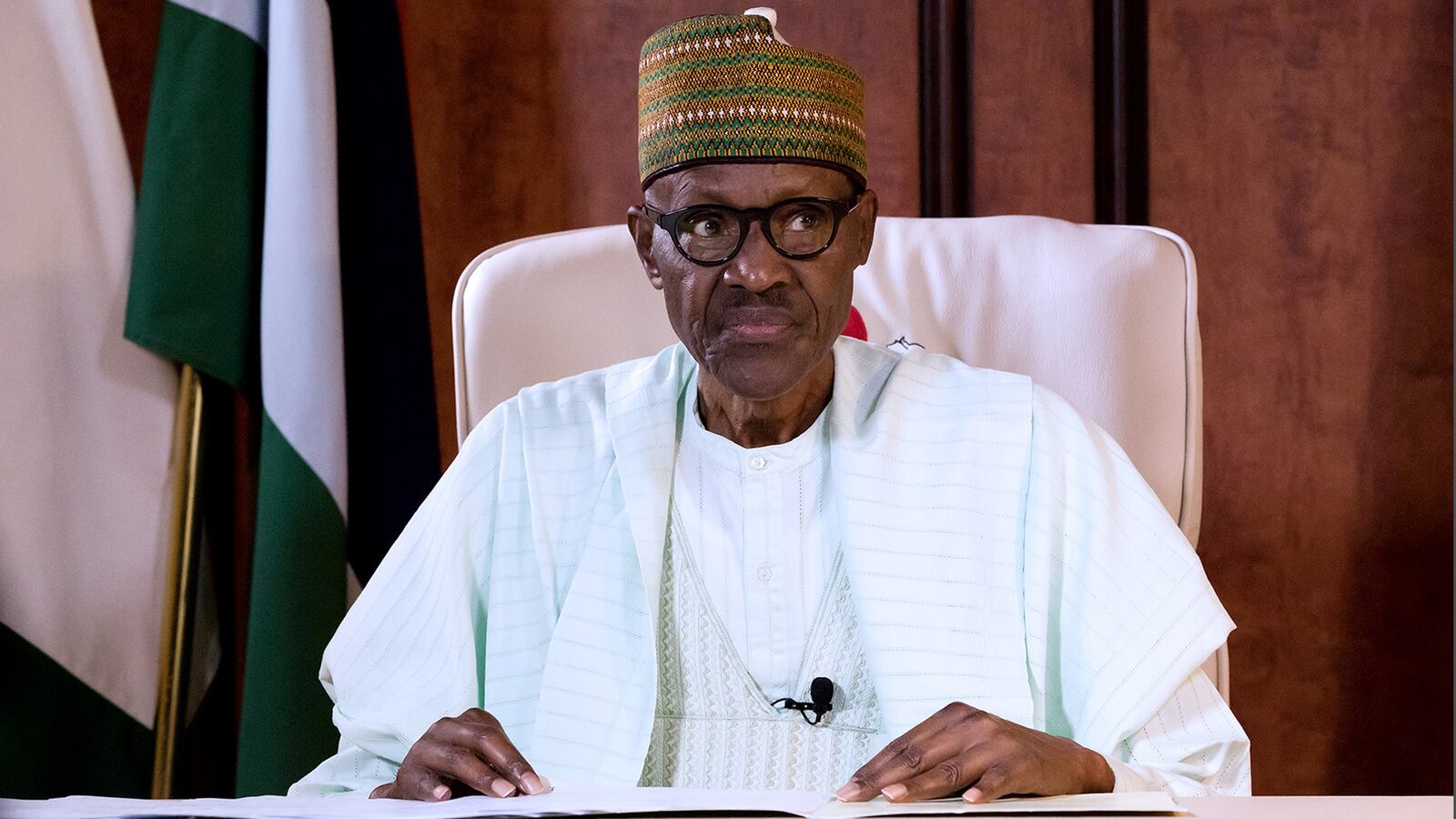CALABAR, Nigeria—Two days after President Muhammadu Buhari returned home—he had been away in London for 103 days receiving treatment for an undisclosed ailment—he managed to address the country. He looked frail and his speech was slurred in the broadcast early Monday morning, but he told his fellow citizens that he had been “kept in daily touch with events at home.”
Apparently those briefings did not include the state of his office while he was away. As the 73-year-old former general prepared to resume his duties, he discovered rats had taken over the president’s office. Literally.
“Following the three months’ period of disuse, rodents have caused a lot of damage to the furniture and the air conditioning units,” Buhari’s spokesman, Garba Shehu, told the local newspaper This Day as he explained why the president had not been to his office since his return.
Buhari will now work from his residence as renovation takes place, perhaps for the next three months, according to the BBC.
“It is not uncommon for Nigerian presidents to also work from the presidential villa,” Shehu told AFP. “He has used the residential office for many years.
“What is important is that the job gets done,” Shehu said to the Abuja-based Arise News broadcaster. “Whether he does it from his bedroom or his sitting room or his anteroom—it does not matter.”
It’s still not clear what variant of rat was responsible for the damage, there are many in Nigeria: thicket rats, swamp rats, shaggy rats, and more. But the infestation hit an office that was renovated only two years ago.
In the 2017 budget, 2 million Nigerian naira ($5,500) was earmarked for cleaning and fumigation services at the state house. It would seem that money was not well spent.
As expected, the government is facing a backlash from opposition politicians, ordinary citizens, and civil society groups, adding to Buhari’s long list of concerns.
Key among his worries is his health. Neither he nor his office have revealed what condition he was being treated for in London.
All through the time Buhari was away, his deputy, Yemi Osinbajo, was in charge and won praise for keeping the currency steady.
But Boko Haram suicide attacks increased during the period and hate speech grew more intense across the country even as calls grew more shrill for Buhari to come back or resign.
On his return, the enfeebled chief executive vowed he would crush Boko Haram—and then came the story about the rats.
The opposition—which claims Buhari has prostate cancer—thinks the whole tale was made up to allow him time to rest.
Since he was elected in 2015, Buhari has visited the U.K. on three different occasions for treatment. He first traveled in June 2016 to treat a persistent ear infection. He left again in January for an undisclosed ailment and was away for two months, during which time President Donald Trump called him to express support for the sale of aircraft from the U.S. to help Nigeria’s fight against Boko Haram. Buhari’s most recent trip to the U.K. began on May 7. “He must resign before he relapses,” tweeted Femi Fani-Kayode, a member of the People’s Democratic Party and a former cabinet minister. “Yesterday he fled from his rat-infested office and today he has cancelled the weekly FEC (Federal Executive Council) meeting.”
Among a population not immune to superstition, the rodent invasion feels like a bad omen. And happenings around the president bring back memories of the last Nigerian leader from the Muslim-dominated north.
Umaru Yar’adua, who was elected in 2007, died in office of ill health nearly three years after he was sworn in.
Like the current president, Yar’adua spent months undergoing treatment abroad before returning to the presidential villa. But unlike Buhari, the former leader never completely resumed his powers. Buhari, it appears, is now fully in charge, at least of the humans in his government. As for the rats? We’ll see.





